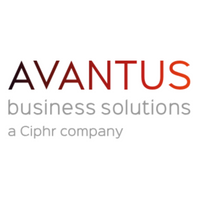The future of reward and benefits with artificial intelligence on the payroll
The influence of artificial intelligence (AI) is growing steadily in all aspects of our lives. For reward and benefits professionals it can revolutionise time management and prioritising tasks.
According to Gartner, 81% of HR leaders have explored or implemented AI to streamline processes. From recruitment and onboarding, to managing performance, there seems to be an AI solution for most things.
The current state of AI in the workforce
With no agreed single definition, at AI’s core is a range of technologies designed and built to emulate or exceed a human (known as Narrow AI) in a given task.
As it stands, AI is more likely to affect more knowledge-intensive roles. This means degree-educated staff are more likely to be exposed to AI within their roles. A recent McKinsey study concluded that this technology replacement capability has been reduced by 10 years, to 2030. This will without doubt affect HR leaders.
HR, but not as we know it
Businesses focus on personalisation and forming human connections. From little touches like sending gifts to clients, to the use of dynamic content in marketing, it’s something that leaders can agree helps drive successful and long relationships.
With the rise of AI-led projects, human sentiment will be at the forefront of making that work. Whether it’s operational sensitivity, to ensuring there are still people to speak to, there’s plenty to consider.
The impact will result in organisations taking the time to audit the adjustment and transformation. To list a few examples, it will require them to review:
- How they demonstrate how they value their people
- Reviewing the skill sets and capabilities across the workforce
- Resourcing needs and hiring processes
- Pay, benefits, rewards and recognition
- Shaking up how people work
Of course the biggest question on everyone’s mind will be how it affects their job. For years the focus has been on potential mass job losses and certain disciplines replaced by ‘robot overlords’.
Supermarkets have moved towards self-scan checkouts but even that’s coming full circle. Chains such as Booths are now ditching the technology, saying it doesn’t align with their dedication to great customer service.
In HR, clients, applicants and staff will be using Generative AI. And of course that includes ChatGPT. With this in mind, you’ll need to explore creating company policy for acceptable use.
AI’s job disruptions could move some low-paid workers into higher-paid positions.
“The glass-half-empty version is that the people who are most vulnerable to some of these shifts are some of the lower-paid folks in the economy,” Michael Chui, a partner at the McKinsey Global Institute, told Business Insider.
“The glass-half-full version is if we’re actually able to transition them through re-skilling, etc, then they could be taking on roles that actually have higher incomes. If we can make the labour market work by enabling these transitions, it's actually all for the good.”
Beyond ChatGPT
ChatGPT isn’t the be-all and end-all of AI. There are plenty of other technologies and solutions to explore and experiment with. Most will still need human judgement. Although decision intelligence should replicate human judgement, it’s still important to check decisions are reasonable, correct and consistent. That’s a capability that generative AI is unable to do on its own.
By far the greatest impact is not limited to the HR function but across an organisation as a whole: improving productivity, reviewing capabilities required, considering skills, roles and personnel that are transferable to new or redefined roles.
Actions:
- Research and create a Generative AI use policy for your organisation. With potential repercussions for IP, confidentiality, and credibility, it’s key to remember that AI still needs supervision.
- Your staff and applicants will be using AI. If ChatGPT can help anyone get a 98% score on a verbal reasoning test and also shift their apparent personality traits, you’ll need to reassess your hiring and performance review assessment methods to factor this in.
- Start an audit review of all your roles and the tasks job holders are required to carry out i.e. which of these tasks could be augmented with AI. Improving the engagement of staff is a big challenge. Recent findings show that technology developers’ job satisfaction/engagement scores improved as a result of replacing mundane and repetitive tasks with AI.
Make a clear plan
There’s a lot to consider when considering the implementation of AI in any business. From how it affects roles to creating acceptable use policies, a clear plan of the transformation is crucial to foster a positive experience.
While AI can enhance business efficiency, human judgement remains crucial. Ultimately AI-driven decisions must align with the business, taking into consideration company culture, values and the unique needs of employees.
To discuss how AI could help shape your employee benefits and HR management, contact us here.
Supplied by REBA Associate Member, Avantus
Flexible Benefits & Technology specialist providing online, highly configurable platforms to Customers and Intermediaries worldwide.








